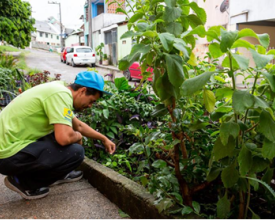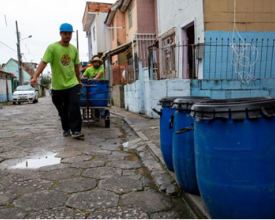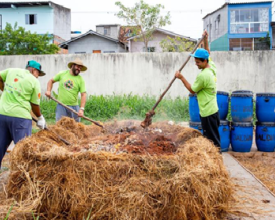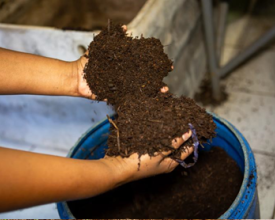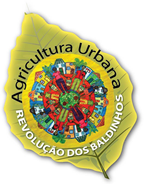
Bucket Revolution: Community Composting of Organic Household Waste
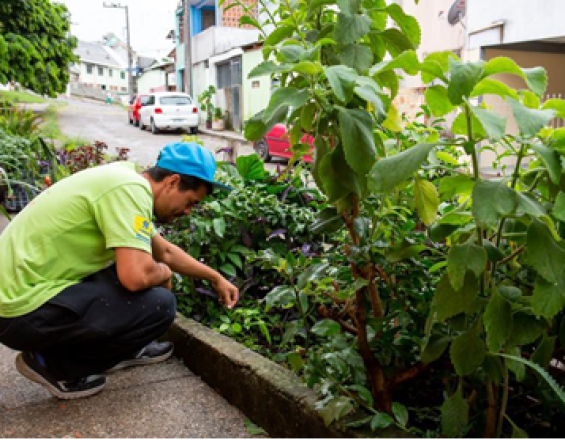
Since 2008, the Bucket Revolution project has been impacting the needy community of Chico Mendes, located in the Monte Cristo neighborhood in Florianópolis-SC. The objective of this project is to encourage community management of organic waste, promote urban agriculture and the socioeconomic inclusion of the participants in the initiative. In this practice, the thermophilic composting method is applied in static mats with passive ventilation in order to recycle organic waste by transforming it into organic fertilizers. The logistics of the project are based on the distribution of buckets to families interested in segregating the organic waste in their homes and the subsequent discarding of the waste in drums placed in voluntary delivery points strategically distributed in the streets. The young people participating in the initiative are responsible for raising community awareness about the proper separation of organic waste at source.
Impacts
In just over 10 years of activity, the project has involved more than 200 families, recycling around 8 tons of organic waste per month. Part of the compost produced is donated to participating families to encourage urban agriculture in public spaces and gardens, and part is marketed by the group formed by young people from the community, in order to increase their income. In 2012, the project received social technology certification from the Bank of Brazil Foundation (FBB) and, in 2014, was awarded second place nationally by FBB, demonstrating its relevance in the services provided, in line with the National Solid Waste Policy and its potential for replication in other communities. Overall, by promoting waste recovery, the benefits to the local community include encouraging the creation of school and garden gardens, job and income generation, social inclusion, urban health, and food and nutrition security. Given the impacts on the environment and for society, the work has gained high visibility and recognition, attracting public and private entities willing to adopt the methodology. The project is applying the methodology in other Brazilian communities and cities, such as Foz do Iguaçu (PR), Santos (SP), Taubaté (SP), Manaus, among others.

